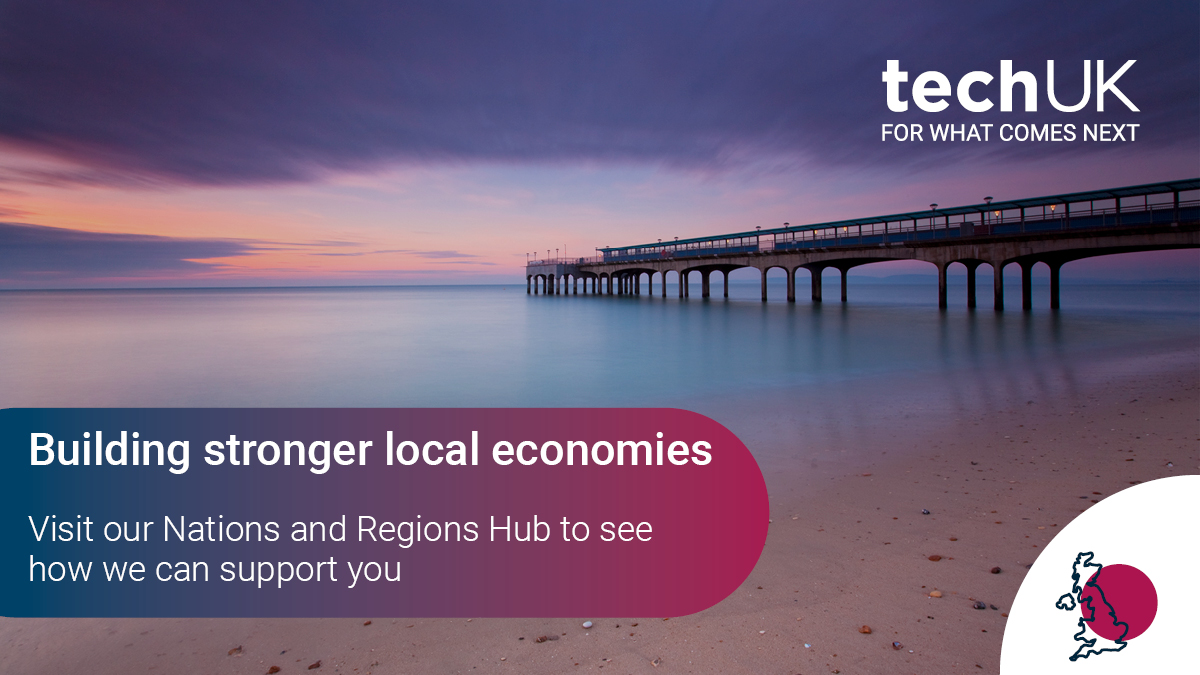How full fibre is helping regional economies underpin the tech sector
Full fibre as an enabler
It’s important to recognise the value that ultrafast infrastructure offers with regards to attracting inward investment and fostering long-term economic growth. Moving away from slower copper connections levels the connectivity playing field, offering local businesses the same transformative opportunities to implement bandwidth-hungry technology that enhances market value, that larger city-dwelling enterprises easily access. Cities with robust digital infrastructure like Manchester and Birmingham are increasingly becoming magnets for businesses looking to establish or expand their operations.
By investing in full fibre networks, local authorities can position their areas as attractive destinations for businesses seeking to harness the benefits of digital transformation. For example, regions looking to deploy 5G infrastructure to execute smart city initiatives, which in some cases has delivered up to £144m return on investment, will require a full fibre backhaul to deploy devices that have a transformative impact on everyday life for private and public sector organisations.
The GVA uplift as a direct result of improved network infrastructure in professional services sectors alone is estimated to be 13%, or £67,000 per employee per annum. This alone highlights the incredible value that investment into ultrafast, gigabit-capable infrastructure can offer regions.
Full fibre connectivity is not just a technical upgrade; it's a strategic enabler of digital transformation across the economy from professional services, public sector bodies and beyond, as well as a vehicle for regeneration.
As we look to the future, it's clear that investing in digital infrastructure is essential for driving growth, creating jobs, and building resilient and inclusive communities. Alternative network providers like Faster Britain with a vast full fibre footprint across the UK have a pivotal role in connecting technology led businesses and beyond with the infrastructure needed to embrace the incredible opportunities associated with full fibre connectivity.
Economy wide benefits
In today's rapidly evolving business landscape, where digital transformation is the key to staying competitive, the importance of full fibre connectivity cannot be understated. Across industries, from health to professional services, businesses are increasingly reliant on digital applications and technologies to streamline their operations, enhance productivity, and deliver superior customer service.
Professional services, increasingly rely on fast and stable internet to deliver projects with efficiency and reliability in mind. In this case, the speeds that full fibre and robust digital infrastructure delivers isn’t just a luxury – it’s a region-wide necessity.
For example, ultrafast connectivity plays a critical role in facilitating seamless communication and collaboration, whether it’s conducting virtual meetings with clients or collaborating with remote teams.
The modern workplace relies heavily on video conferencing, cloud-based applications, and other digital tools to get the job done, and without a full fibre backed connection, essential activities that uplift the local economy, including the booming professional services sector – representing, for example in Manchester, the region’s largest growing sector with a 45% predicted growth rate by 2037, fall victim to dropped connections and interruptions. These symptoms have an eroding impact on client confidence, so adopting the right business-first connectivity solution now is a strategic imperative.
Furthermore, as businesses continue to expand their operations and embrace modern technologies, the demand for bandwidth continues to grow exponentially. From managing larger volumes of data to supporting an increasing number of connected devices, traditional copper-based internet infrastructure simply cannot keep pace with the evolving needs of modern businesses.
This represents a growing need across all local authorities that must move away from slower ADSL and FTTC infrastructure that have a detrimental impact on productivity and innovation. Full fibre connectivity offers a scalable and future-proof solution to this challenge, providing businesses with the bandwidth they need to thrive in the digital age.
Ultrafast infrastructure also does more than simply provide businesses with a means to overcome typical symptoms of poor connectivity. Full fibre connectivity empowers businesses to leverage emerging technologies such as the Internet of Things (IoT) and artificial intelligence (AI) to drive innovation and efficiency.
Having the infrastructure to adopt these technologies is also central to smart city and green initiative, with the implementation of environmental monitoring devices within densely populated areas, thus meeting net-zero targets reliant on digital infrastructure.
By connecting smart devices and sensors to a high-speed internet network, businesses can gather real-time data, automate processes, and make data-driven decisions that enhance their operations and deliver value to their clients. Achieving greater accuracy and avoiding human error by implementing these transformative digital solutions increases a region’s competitive value, ensuring local businesses can compete on a national or international stage, not just regional.

techUK – Building Stronger Local Economies

techUK champions the tech sector throughout the UK. We work with local authorities, devolved government, and local and national policy makers to advocate for the tech sector in strengthening economic growth and resilience. We provide opportunities for our members and local stakeholders to meet, build relationships, and collaborate to drive forward local projects. For more information or to get in touch, please visit our Nations and Regions Hub and click ‘contact us’.
Upcoming Nations and Regions events:
Latest news and insights:
Get our Nations and Regions insights straight to your inbox:
Sign-up to get the latest updates and opportunities from our Nations and Regions programme.
Contact the team:
Learn more about our Nations and Regions campaign:











